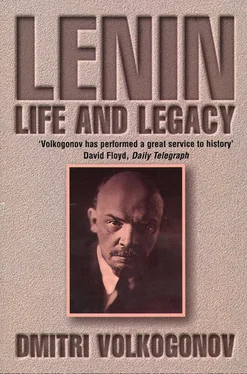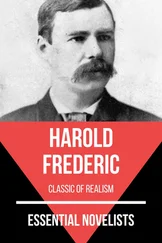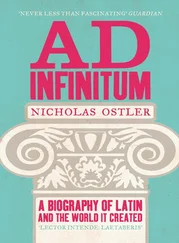If there were other entries, they were either lost or censored. There is evidence that some pages were torn out of the diary.
It was some time before Inessa’s body could be brought to Moscow, and the archives contain a file of telegrams between the capital and Vladikavkaz. The Central Committee became involved, and Lenin himself demanded that the body be sent to Moscow as soon as possible. There were no suitable goods vans. A death was nothing unusual at that time – people were being buried without coffins. But Moscow was demanding a railcar and a coffin. As long as the local authorities were not threatened with revolutionary justice, they could not find a railcar. Inessa died on 24 September 1920, but her body did not reach Moscow until 11 October.
In a large, ugly lead coffin (not open, as she had been dead for some time), she lay in state in a small hall in the House of Soviets. Only a few people came. Some wreaths had been laid, including one of white hyacinths, with a ribbon inscribed ‘To Comrade Inessa from V.I. Lenin’. 121 At the burial at the Kremlin wall the next day, Lenin was almost unrecognizable. Angelica Balabanova, a Comintern official and seasoned revolutionary, was there: ‘Not only his face but his whole body expressed so much sorrow that I dared not greet him, not even with the slightest gesture. It was clear that he wanted to be alone with his grief. He seemed to have shrunk: his cap almost covered his face, his eyes seemed drowned in tears held back with effort. As our circle moved, following the movement of the people, he too moved, without offering resistance, as if he were grateful for being brought nearer to the dead comrade.’ 122 Witnesses recalled that he looked as if he might fall. His sad eyes saw nothing, his face was frozen in an expression of permanent grief.
Lenin saw that Inessa was given a proper, if modest, tombstone. Inessa’s family now had no one, and to Lenin’s credit, as long as he was healthy, he (and Krupskaya, when he too was dead) did what he could to get Inessa’s five children back on their feet. In December 1921, for instance, Lenin cabled Theodore Rothstein, a former émigré who had returned to Russia in 1920 after twenty years in England, where he had been involved in forming the Communist Party of Great Britain, and was now a Comintern official: ‘I request that you do something for Varya Armand [Inessa’s youngest daughter] and if necessary send her here, but not alone and with a warm dress …’ 123
Inessa had died tragically early, but she had been prepared for such an eventuality. In February 1919 she went with a Russian Red Cross delegation to France to work among the remnants of the Russian Expeditionary Corps being held there. She wrote to her elder daughter, known as Little Inessa (Inusya):
Here I am in [Petrograd] … We spent the night here and are now moving on … I’m enclosing a letter for Sasha, another for Fedya [her sons] and a third one for Ilyich. Only you are to know about this last one. Give the first and second ones to them straight away, but keep the third one yourself for the time being . When we get back I’ll tear it up. If something happens to me (not that I think there’s any special danger about this trip, but anything can happen on the journey, so just in case), then you must give the letter personally to VI. II . The way to do it is to go to Pravda where Marya Ilyinichna [Lenin’s sister] works, give her the letter and say that it’s from me and is personal for V.I. Meanwhile, hang onto it … It’s sealed in an envelope.’ 124
Inessa returned to Moscow in May 1919, and the contents of that letter to Lenin has joined the other secrets of their relationship. Whatever they may have been, we can say with certainty that Inessa had been perhaps the brightest ray of sunshine in his life.
Some ‘professional revolutionaries’ lived quite well. One would search the Soviet sources in vain for any account of where Lenin and his family found the money to live on after their father died, yet they could travel abroad almost at will, and lived in Germany, Switzerland and France. For seventeen years Lenin lived in the capital cities of Europe and stayed in some of the most congenial resorts. What was the source of the funds that he needed not merely for his activities as leader of the Bolsheviks, but also for ‘doing nothing’?
The Bolsheviks had a rule that only the highest Party authorities should know the details of the Party’s finances; often only the General Secretary himself. Millions of Communists – as they called themselves after October 1917 – dutifully paid their dues without the least notion of where their money was going. Not even the government knew how much was being spent on ostentatious Party occasions such as congresses, support for foreign Communist Parties and illegal groups, and funding Comintern right up to 1943. The Central Committee reviewed the budget for Comintern annually. For instance, on 20 April 1922 the Politburo accepted a forecast budget of 3,150,600 gold roubles for Comintern activities for the year. There was no discussion, despite the fact that other complex matters of state expenditure were on the agenda, such as reparations which Soviet Russia had agreed to pay to Poland under the terms of the Treaty of Riga, and the allocation of gold to the intelligence services for special purposes. 125 A week later, Zinoviev, as chairman of Comintern, tabled a paper on the budget, and the previous week’s forecast was revised upwards by a further reserve of 400,000 gold roubles as a first instalment. Zinoviev explained that he needed 100,000 gold roubles at once ‘for agitation among the Japanese troops’. 126 The passion for financial secrecy was, however, born long before, and it extended to the official account of Lenin’s early life as well.
Hired in January 1892 as an assistant to the barrister A.N. Khardin, the young Ulyanov stuck the job for barely eighteen months. He acted as defence counsel in a few cases, mostly of petty theft – personal items from a merchant’s suitcase, bread from a warehouse – in his own words barely enough ‘to cover the selection of court papers’. At the time of the revolution of 1917, Lenin, aged forty-seven, had spent all of two years in paid work. How was the impression formed in the Soviet public mind that, contrary to the ‘materialistic philosophy of history’, questions of Lenin’s everyday life and existence counted for nothing alongside the worldwide issues of the revolution? The first historian to raise the question of Lenin and money was the émigré and former Bolshevik and Menshevik Nikolai Valentinov, who based the various accounts he published, mostly after the Second World War, on first-hand knowledge and scrupulous research.
After the death of Ilya Ulyanov, his widow, as the widow of a State Counsellor and holder of the Order of Stanislav First Class, received a pension of 100 roubles a month. This compares with the eight roubles a month that Lenin received from the state as an exile in Shushenskoe, and that he found adequate for rent, simple food, and laundry. 127 Could all the Ulyanovs have lived on their mother’s pension, even though it was a good one by contemporary standards, and study, travel, go abroad? She went abroad herself three times, to Switzerland, France and Sweden, on two occasions with her daughter Maria. And Maria in addition went abroad five times, sometimes for lengthy periods. The elder daughter, Anna, also went abroad several times, staying in Germany and France for almost two years. Tickets, hotels, food, purchases and unforeseen expenses on long trips, all took considerable funds, certainly more than the pension would stand. Anna and Maria and Lenin’s wife all testified that they lived on the mother’s pension and on what their father had managed to save in his lifetime. But this does not square with the reality, and Krupskaya herself says so: ‘They are writing about our lives as if we were in penury. It’s not true. We were never in the position of not being able to afford bread. Were there such people among the émigrés? There were some who had had no income for two years and got no money from Russia, and they really starved. We were not like that. We lived simply, that’s the truth.’ 128
Читать дальше












